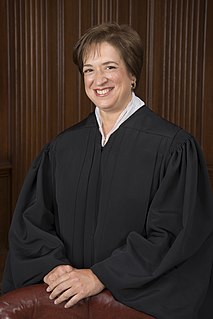A Quote by Roger Bacon
There are in fact four very significant stumbling blocks in the way of grasping the truth, which hinder every man however learned, and scarcely allow anyone to win a clear title to wisdom, namely, the example of weak and unworthy authority, longstanding custom, the feeling of the ignorant crowd, and the hiding of our own ignorance while making a display of our apparent knowledge.
Quote Topics
Allow
Anyone
Apparent
Authority
Blocks
Clear
Crowd
Custom
Display
Every
Every Man
Example
Fact
Feeling
Four
Grasping
Hiding
Hinder
However
Ignorance
Ignorant
In Fact
Knowledge
Learned
Making
Man
Namely
Our
Own
Scarcely
Significant
Stumbling
Stumbling Block
Stumbling Blocks
Title
Truth
Unworthy
Very
Way
Weak
Which
While
Win
Wisdom
Related Quotes
WISDOM IS dependent upon knowledge. Where there is complete ignorance there can be no wisdom, no knowledge of the right thing to do. Man’s knowledge is comparatively limited and so his wisdom must be small, unless he can connect his mind with a knowledge greater than his own and draw from it, by inspiration, the wisdom that his own limitations deny him. Only God knows all truth; therefore only God can have Real wisdom or know the right thing to do at all times, and man can receive wisdom from God. Wisdom is obtained by reading the mind of God.
Christ was crucified because he would have nothing to do with the crowd (even though he addressed himself to all). He did not want to form a party, an interest group, a mass movement, but wanted to be what he was, the truth, which is related to the single individual. Therefore everyone who will genuinely serve the truth is by that very fact a martyr. To win a crowd is no art; for that only untruth is needed, nonsense, and a little knowledge of human passions. But no witness to the truth dares to get involved with the crowd.
We have heard of a Society for the Diffusion of Useful Knowledge. It is said that knowledge is power, and the like. Methinks there is equal need of a Society for the Diffusion of Useful Ignorance, what we will call Beautiful Knowledge, a knowledge useful in a higher sense: for what is most of our boasted so-called knowledge but a conceit that we know something, which robs us of the advantage of our actual ignorance? What we call knowledge is often our positive ignorance; ignorance our negative knowledge.
A Christian boy or girl can learn mathematics, for example, from a teacher who is not a Christian; and truth is truth however learned. But while truth is truth however learned, the bearing of truth, the meaning of truth, the purpose of truth, even in the sphere of mathematics, seem entirely different to the Christian from that which they seem to the non-Christian; and that is why a truly Christian education is possible only when Christian conviction underlies not a part but all, of the curriculum of the school.
I've led a school whose faculty and students examine and discuss and debate every aspect of our law and legal system. And what I've learned most is that no one has a monopoly on truth or wisdom. I've learned that we make progress by listening to each other, across every apparent political or ideological divide.
The very essence of truth is plainness and brightness; the darkness and crookedness is our own. The wisdom of God created understanding, fit and proportionable to truth, the object and end of it, as the eye to the thing visible. If our understanding have a film of ignorance over it, or be blear with gazing on other false glitterings, what is that to truth?
As regards authority I so proceed. Boetius says in the second prologue to his Arithmetic, 'If an inquirer lacks the four parts of mathematics, he has very little ability to discover truth.' And again, 'Without this theory no one can have a correct insight into truth.' And he says also, 'I warn the man who spurns these paths of knowledge that he cannot philosophize correctly.' And Again, 'It is clear that whosoever passes these by, has lost the knowledge of all learning.'
..all arguments concerning existence are founded on the relation of cause and effect; that our knowledge of that relation is derived entirely from experience; and all our experimental conclusions proceed upon the supposition that the future will be conformable to the past. .... Without the influence of custom, we should be entirely ignorant of every matter of fact beyond what is immediately present to the memory and senses.
We have resorted to every means to win back the position that Adam lost. We have tried through education, through philosophy, through religion, through governments to throw off our yoke of depravity and sin. All our knowledge, all our inventions, all our developments and ambitious plans move us ahead only a very little before we drop back again to the point from which we started. For we are still making the same mistake that Adam made - - we are still trying to be king in our own right, and with our own power, instead of obeying God's law.
Says Bargh: "We all hold dear idea that we´re the captain of our own sould, and we´re in charge, and it´s a very scary feeling when we are not. In fact, that´s what psychosis is - the feeling of detachment from reality and that you are not in control, and that´s a very frightening feeling for anyone."







































